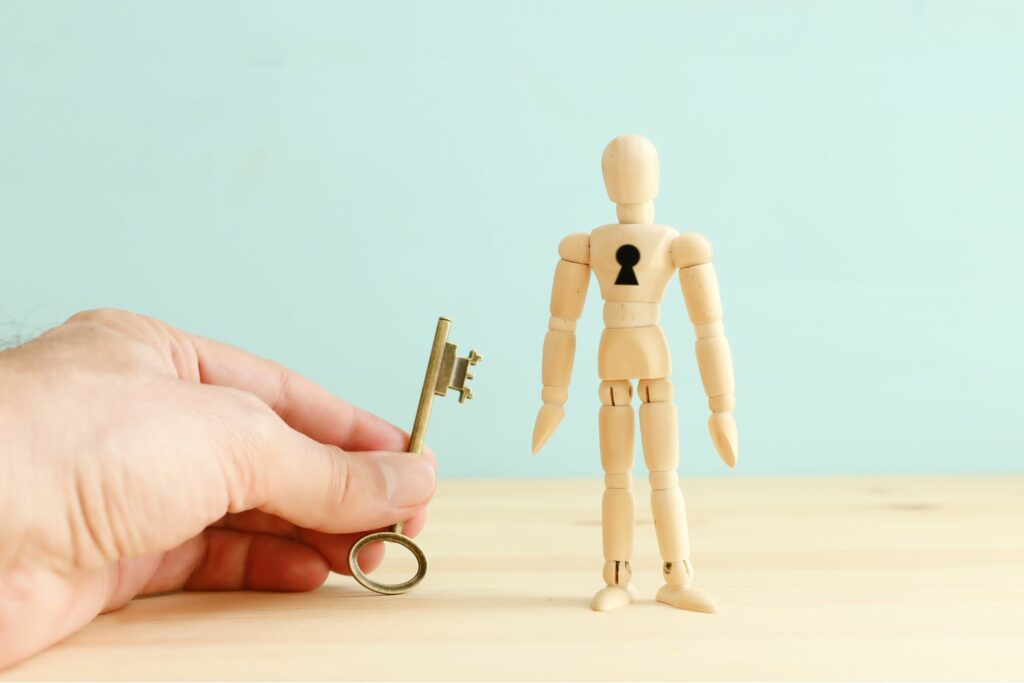Job interviews can be exciting and nerve-wracking at the same time. They are your gateway to a new job opportunity, and it’s important to make a great first impression. The purpose of job interviews is to get to know the candidate, their skills, experience, and qualifications better. A good impression plays a significant role in making the interviewer remember you as an ideal candidate for the job.
In this blog, we will discuss how to prepare for an interview and what steps you can take during and after the interview to showcase your potential. We will also cover how following up with the interviewer can influence the outcome of the interview. With these tips, you’ll be able to craft a winning impression that lands you your dream job.
Understanding Job Interviews
Job interviews, a common step in the hiring process, provide insight into potential employers and their culture. They allow hiring managers to assess your fit for the job and offer an opportunity to understand a company’s values and expectations. Success in interviews often leads to job offers, making it crucial to leave a lasting impression in this first step towards career progression. Understanding the nuances of interviews is the first time you’ll need to showcase your umbrella of skills and make the right impression.
The Purpose of Job Interviews
Job interviews serve as a crucial assessment tool for hiring managers, allowing them to evaluate qualifications and potential fit within the company. They provide a platform for candidates to showcase their skills, expertise, and experience while gaining insights into the company’s culture and values. Demonstrating professionalism and making a positive impression during the interview can significantly impact the interviewer’s perception and increase the likelihood of a successful outcome. As a potential employee, understanding the purpose of job interviews is pivotal in navigating the interview process with confidence and effectively positioning oneself as the ideal candidate for the role.
The Role of a Good Impression in Job Interviews
When it comes to job interviews, creating a good impression is crucial. It sets the stage for a positive experience and helps build rapport with potential employers. First impressions can significantly influence the interviewer’s perception of you, ultimately impacting your chances of success. Making a lasting impression during job interviews is an essential part of the process, as it can enhance your overall candidacy and position you as a strong potential employee within the company.
Preparing for the Interview

Thoroughly researching the company and interviewers is crucial prior to the interview. It’s essential to familiarise yourself with the job description to prepare effectively. Identifying your relevant skills and qualifications is important for showcasing your potential as a candidate. Additionally, preparing specific examples of your work to discuss during the interview can strengthen your responses. Finally, practicing interview responses with someone can significantly boost your confidence for the big day.
Researching the Company and the Interviewers
A critical part of interview preparation is researching the company’s background, values, and recent news. Understanding the roles and backgrounds of the interviewers can also provide a significant advantage. This knowledge can guide interview preparation, demonstrate genuine interest, and show enthusiasm. Being well-informed about the company’s current projects and initiatives is equally essential. Researching the company and the interviewers is the first step in making the right impression and increasing the chances of being a good fit for the company.
Reread the Job Description
Revisiting the job description is a critical step in interview preparation. It aligns your skills and experiences with the role, ensuring a clear understanding of the requirements. By rereading, you can anticipate potential interview questions, identify key qualifications, and articulate your fit for the position. This process helps tailor your answers to the job’s needs and showcases your understanding of the role, making a great first impression.
Identifying Your Skills and Qualifications
Identifying the most relevant skills and qualifications is essential for interview success. Understanding how your abilities align with the job requirements demonstrates your suitability for the role. Highlighting unique qualifications can distinguish you from other candidates, while identifying transferable skills from previous experiences can be advantageous. Articulating your qualifications effectively not only showcases your capabilities but also leaves a lasting positive impression on the interviewer. It’s crucial to present yourself as the best potential employee for the job.
Prepare Examples of Your Work
Preparing specific examples of your work showcases your capabilities, strengthening interview responses. Sharing success stories supports your qualifications, providing concrete evidence of your expertise. Diverse examples highlight your versatility, leaving a lasting impression on potential employers. It’s crucial to discuss past projects and achievements to demonstrate your potential as a valuable asset. This step is a great way to make the right impression and stand out as the best fit for the role. Good luck in your preparation!
Practicing Interview Responses with Someone
Enhancing interview performance through practicing responses with a friend or mentor is crucial. Feedback received can refine answers, while role-playing common scenarios can boost confidence. Alleviating nervousness during the interview is possible by rehearsing potential questions, improving articulation and delivery. This preparation sets a strong foundation for making a great first impression, showcasing your abilities as a potential employee. Receiving guidance before the first time you face an interviewer is a valuable step in your career progression.
Prepare a List of References
Preparing a list of professional references is crucial for job interviews. It’s courteous to inform them about the opportunity and ensure they are aware of your job search. A diverse list can validate your capabilities, so include references who can speak to various aspects of your qualifications. This provides concrete evidence of your skills and expertise. It’s a great way to make a good first impression and a good sign to potential employers.
During the Interview

Arriving well-prepared, with knowledge of the company’s values and culture, is crucial. Maintaining good posture throughout showcases confidence. Creating a lasting impression with positive body language and demonstrating professionalism through attentiveness are vital. Making a great first impression with confident body language indicates preparedness. It’s important to be engaged throughout the interview to convey a genuine interest in the role and the company. Demonstrating deference and answering questions efficiently are also essential during this phase.
Dressing Appropriately
When preparing for a job interview, dressing appropriately is crucial. Your attire should align with the company’s dress code, culture, and values to create a positive impression. Dressing professionally reflects your commitment and respect for the opportunity. Making a great first impression with appropriate attire sets the stage for a successful interview. Remember, the way you present yourself through clothing is the first step in showcasing you as a potential employee and a good fit for the company. Dress to impress!
Bring resume copies, a notebook and a pen
Always have extra copies of your resume on hand, displaying your preparedness. Carry a notebook and pen to showcase your attentiveness during the interview. Consider bringing along a portfolio or samples of your work to demonstrate your expertise. Dress professionally to make a lasting impression and practice your answers beforehand to exude confidence.
Plan to arrive 10–15 minutes early
Arriving early for a job interview demonstrates respectfulness, punctuality, and professionalism. It shows the potential employer that you value their time and are serious about the opportunity. Making a good first impression by being punctual can set the right tone for the interview. Arriving 10–15 minutes early is a great way to exhibit these qualities and make a positive impact. It’s the first step towards showcasing yourself as a potential employee who is a good fit for the company.
Making an Effective First Impression
Crafting a great first impression in a job interview involves various essential elements. Engaging in eye contact, demonstrating good posture, and exuding confident body language are crucial factors that contribute to creating a positive impression. This initial impact sets the tone for the entire interview and can significantly influence the interviewer’s perception of you as a potential employee. Presenting yourself in a way that crafts a great first impression is the best first step towards making a lasting impression and signaling to the employer that you are a good fit for the company.
Demonstrating Respectfulness
During the interview process, exhibiting professionalism is essential. Show respect to the interviewer through attentive body language, creating a positive impression. Demonstrating respectfulness by maintaining professionalism and displaying respect will leave a lasting impression. Craft a positive image by displaying respectful behavior, which is crucial for making the right first impression.
Answering Interview Questions Efficiently
Crafting a positive impression during an interview involves answering common questions with confidence and clarity. Efficiently responding to interview questions showcases your potential and leaves a lasting impression on the interviewer. By effectively answering questions, you demonstrate your ability to be a good fit for the company culture. Answering interview questions efficiently is a great way to create the right impression and take the first step towards securing a new job.
Asking Pertinent Questions
Crafting a positive impression in job interviews involves demonstrating your potential by asking relevant and insightful questions. By doing so, you showcase your professionalism and create a lasting impression on the potential employer. Asking pertinent questions not only demonstrates your interest in the role but also helps you gauge whether the company culture and values align with your career progression. It is the best first step towards making a good fit for the new job and leaving a great way for the potential employer to remember you. Good luck!
Showcasing Your Potential

Highlighting your extensive years of experience and expertise can significantly enhance your candidacy. It is crucial to showcase your qualifications, experience, and potential to the potential employer in a compelling manner. Your work experience should be presented in a way that effectively demonstrates your potential and suitability for the role. Making a lasting impression by highlighting your potential is key to securing the position. The employer should be able to clearly see how you exhibit your potential and qualifications, positioning yourself as the best fit for the job.
Highlighting Relevant Work Experience
When highlighting your relevant work experience, it’s essential to emphasise its alignment with the job description. By showcasing your experience that directly relates to the role, you can create a lasting impression and demonstrate your suitability as a potential employee. Crafting a positive impression through relevant work experience involves presenting your qualifications and expertise tailored to the company’s needs. With the right emphasis on your relevant work experience, you can make a strong and compelling case for being the best fit for the new job opportunity.
Discussing your Skills and Competencies
Highlighting your specific achievements and experiences relevant to the job is crucial. Tailor your responses to match the required skills and competencies. Utilise storytelling to provide real-life examples of how you’ve applied your skills, both soft skills such as communication and problem-solving, and technical skills. Quantifying your achievements can effectively demonstrate the impact of your skills in previous roles, leaving a lasting impression on the potential employer.
Responding to Feedback
When receiving feedback, it’s essential to remain open and receptive to constructive criticism. Embrace the opportunity to learn and improve by acknowledging the feedback and expressing a willingness to make necessary enhancements. If the feedback seems unclear or ambiguous, don’t hesitate to ask for clarification. Actively seek feedback during and after the interview process, reflecting on it to enhance your future interview performance. Remember, embracing feedback is a crucial part of your career progression.
Closing the Interview

After showcasing your potential throughout the interview, it’s crucial to leave a lasting impression by summarising your key strengths and expressing genuine interest in the role. Inquire about the next steps in the hiring process to show your proactive approach. Express enthusiasm for the opportunity to join the company and seek clarity on the timeline for decision-making. Conclude with gratitude by thanking the interviewer for their time and consideration. Following up post-interview is a great way to reinforce the right impression and showcase your professionalism.
Concluding with Gratitude
After the interview, express genuine gratitude for the interviewer’s time and insights. Reiterate your interest in the position and the company, using language that conveys humility and respect. Offer to provide any additional information if needed. Emphasise the positive aspects of the interview experience and show appreciation for the opportunity. This is a great way to leave a lasting impression and signal your enthusiasm for the role and the company.
Following Up Post Interview
After the interview, it’s essential to send personalised thank-you emails to each interviewer. Reinforce your engagement by mentioning specific discussion points. Restate your qualifications and express gratitude for the opportunity. Include contact details and invite further follow-up if needed. This is a great way to make a lasting impression and showcase your interest in the position. Following up post-interview can significantly influence the outcome, so craft your thank-you email carefully to leave a positive impact.
How can following up influence the interview outcome?
Following up after a job interview can greatly influence the outcome. It reinforces professionalism and interest, keeps your candidacy fresh in the interviewer’s mind, addresses concerns or questions, shows proactive communication skills, and helps you stand out from other candidates.
After the Interview
Reflect on the interview experience and identify areas for improvement. Evaluate your performance and consider any potential concerns raised by the interviewer. Take note of any new information or insights gained during the interview. Research and prepare for subsequent interview rounds, if applicable. Stay engaged and mentally prepared for a potential job offer or further interviews.
Ask About the Next Step
Upon completion of the interview, it is essential to seek clarity on the timeline for the hiring decision. Inquire about any additional rounds of interviews or assessments to prepare effectively. Request information on the process for notifying candidates of the decision while politely expressing eagerness to move forward in the selection process. Lastly, ask if there are any outstanding questions or concerns about your candidacy to leave a lasting impression. This approach showcases professionalism and continued interest in the role.
Send a thank-you letter
After the job interview, it’s essential to send a thank-you letter to express appreciation for the interviewer’s time and consideration. Customise the letter to reflect specific discussions from the interview and reaffirm your interest in the role and the company. Ensure a professional tone and format for the letter, and deliver it in a timely manner to maintain positive momentum. This gesture is a great way to make a lasting impression and showcase your professionalism.
Conclusion
In conclusion, crafting a winning impression in job interviews is crucial for securing the job you desire. It starts with thorough preparation, including researching the company, identifying your skills and qualifications, and practising interview responses. During the interview, make sure to dress appropriately, arrive early, and make an effective first impression by demonstrating deference and answering questions efficiently. Showcase your potential by highlighting relevant work experience and discussing your skills and competencies. As the interview comes to a close, express gratitude, follow up with a thank-you letter, and inquire about the next steps. Remember, following up can greatly influence the interview outcome. With these tips in mind, you’ll be well-equipped to leave a lasting impression and increase your chances of landing the job.